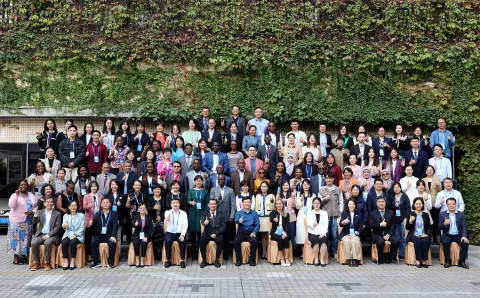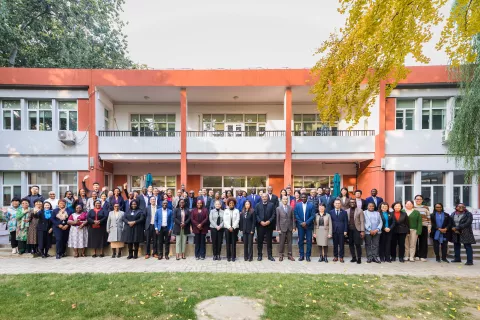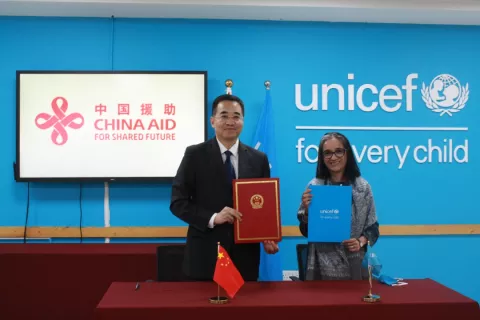Mothers reaching out to mothers to lower the HIV infection rate among newborns
Prevention of Mother-to-Child Transmission
- Available in:
- 中文
- English
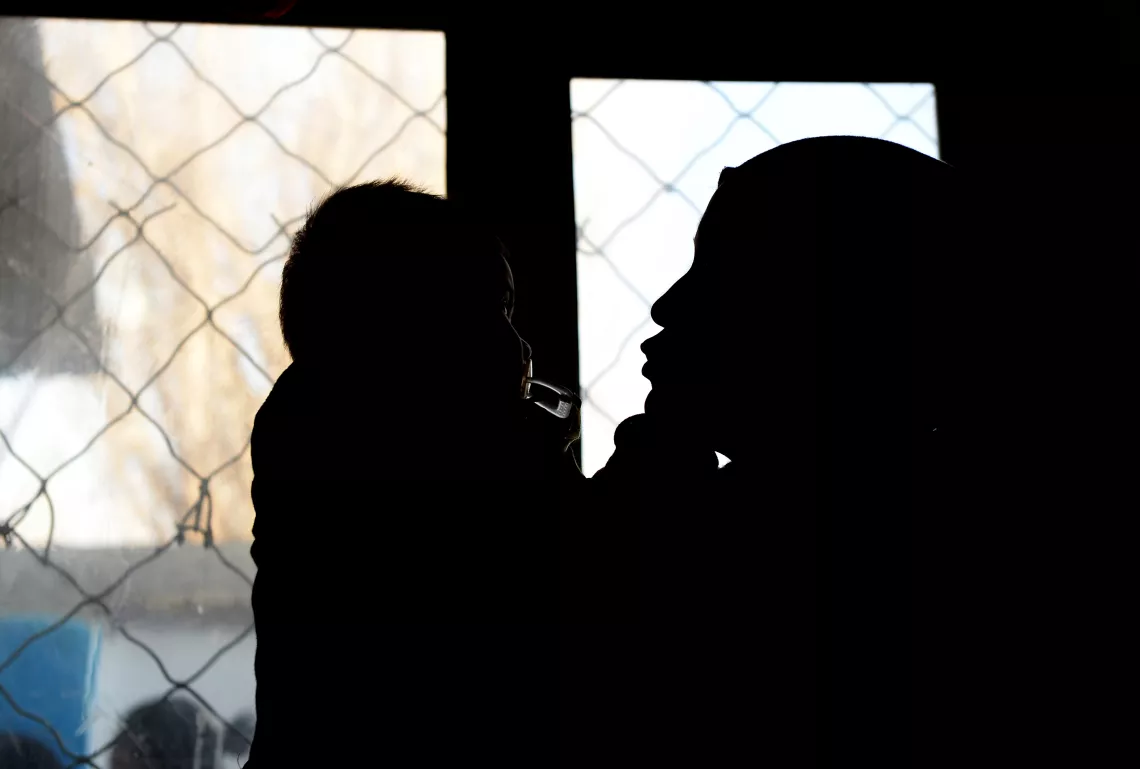
Many women unknowingly are infected with HIV through their spouse and when they give birth, they are unaware that the virus may have replicated in their baby. Without treatment, about 30–40 per cent of babies are born with HIV. With treatment, more babies can be born free of HIV.

Reaching out for such treatment requires women being aware of their HIV status. In China as in many Asian countries, testing is a huge hurdle. Fear of stigma and discrimination, shyness, traditional beliefs or erroneous beliefs that nothing can be done, hold many women (and their children) back from being tested.
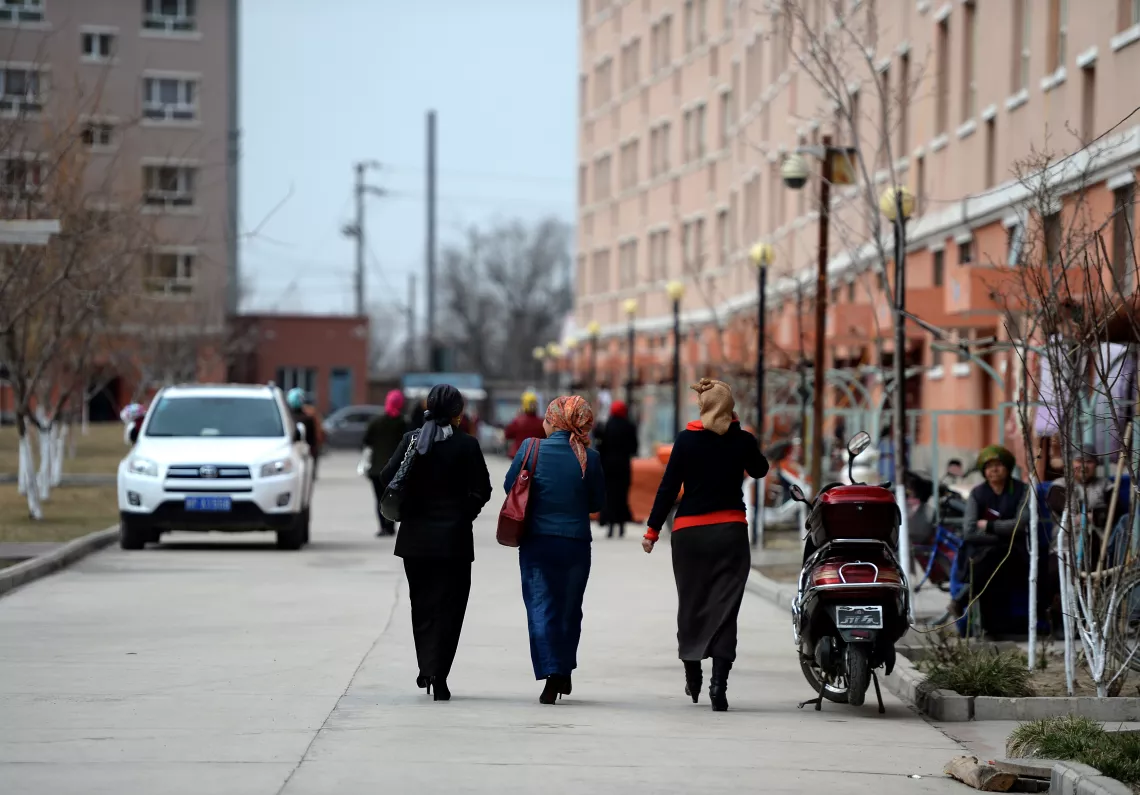
To educate all parents on how a test for HIV can make a difference in their lives and for their children, especially in remote areas, the Government of China has deployed a legion of peer outreach educators to promote the prevention of mother-to-child transmission (PMTCT) of HIV. Most of the volunteers are women who live with HIV and have already benefitted from a government project, Community Care for PMTCT Project, which UNICEF has been supporting since 2011.
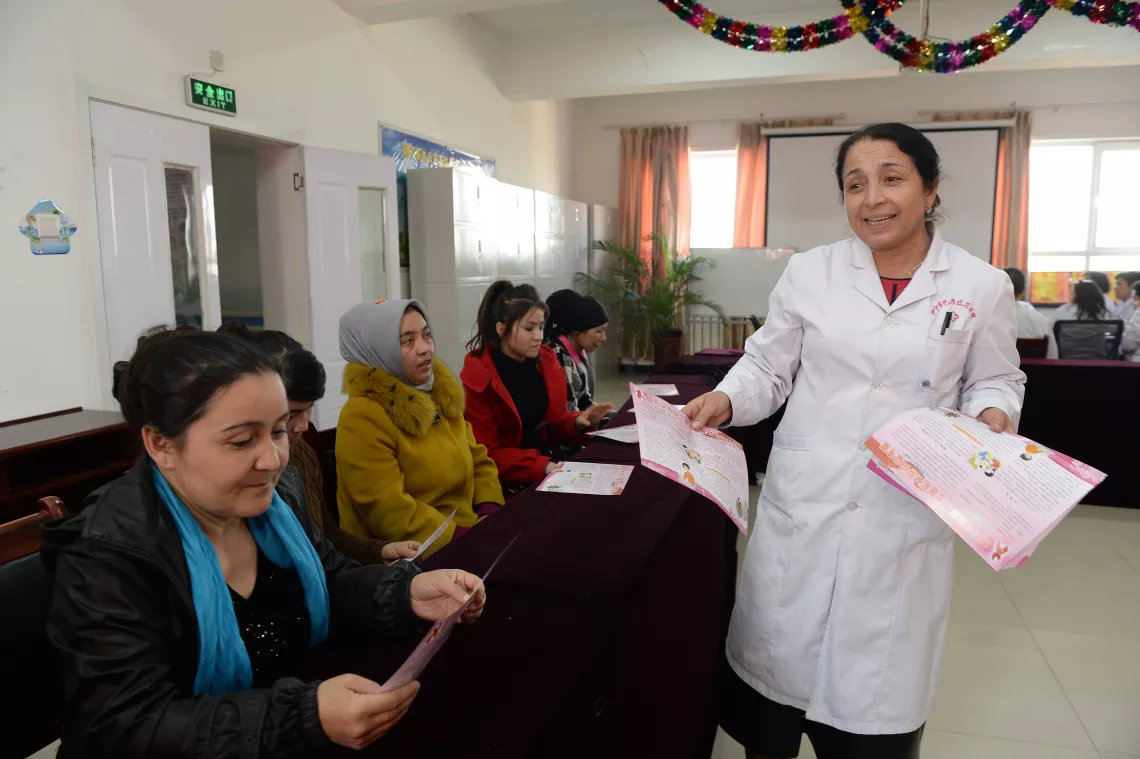
The Community Care for PMTCT Project provides HIV testing and triple-therapy treatment for pregnant mothers and their newborns in the three areas of China’s three western provincial-level regions hardest hit by the disease. The project relies on peer educators, trained by local maternal-child health specialists who reach out to all women and children, but especially to pregnant women, to help them rise above their fears of stigma and discrimination and realize they can do more “together” to ensure their babies are born with a strong start in life.
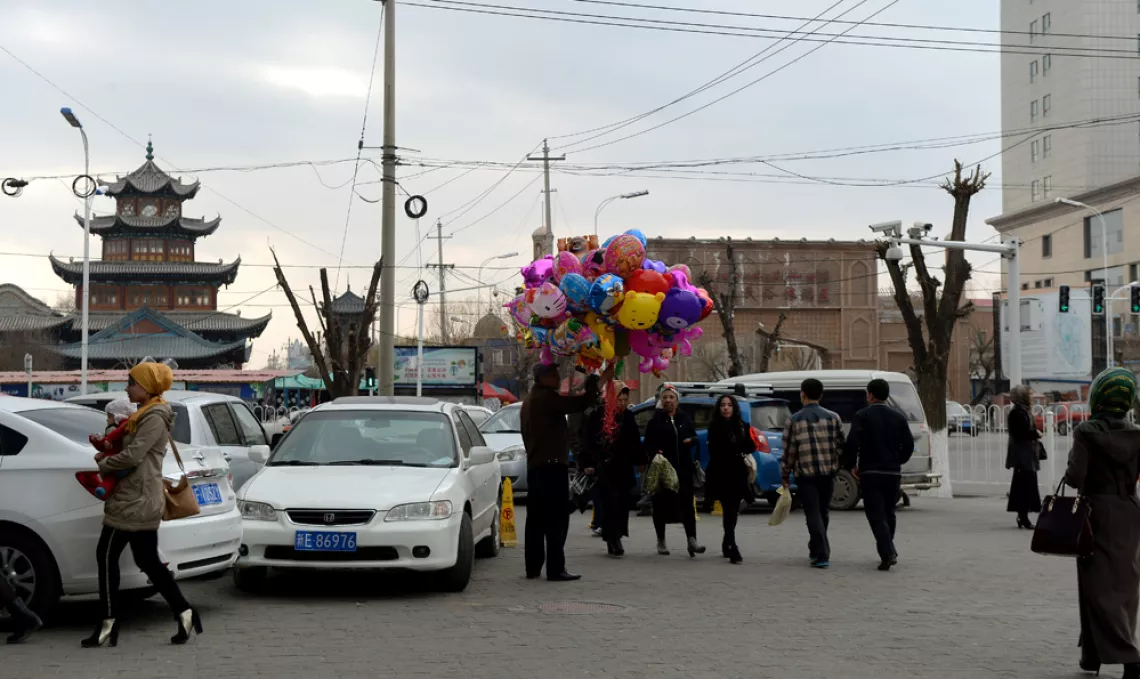
Yining is a multi-culture city in China’s north-western Xinjiang Uyghur Autonomous Region. Since 2003,the Central Government has been working with UNICEF to help the local government find strategies for reducing the rate of mother-to-child transmission of HIV. In 2012, they launched the peer educator outreach project to promote HIV testing and triple-therapy treatment for mothers and newborns.

In Yining City, as in the other test sites for the project, nurses work with the peer educators to set up self-help groups or group counseling to send a strong message to pregnant women living with HIV that they are not alone.
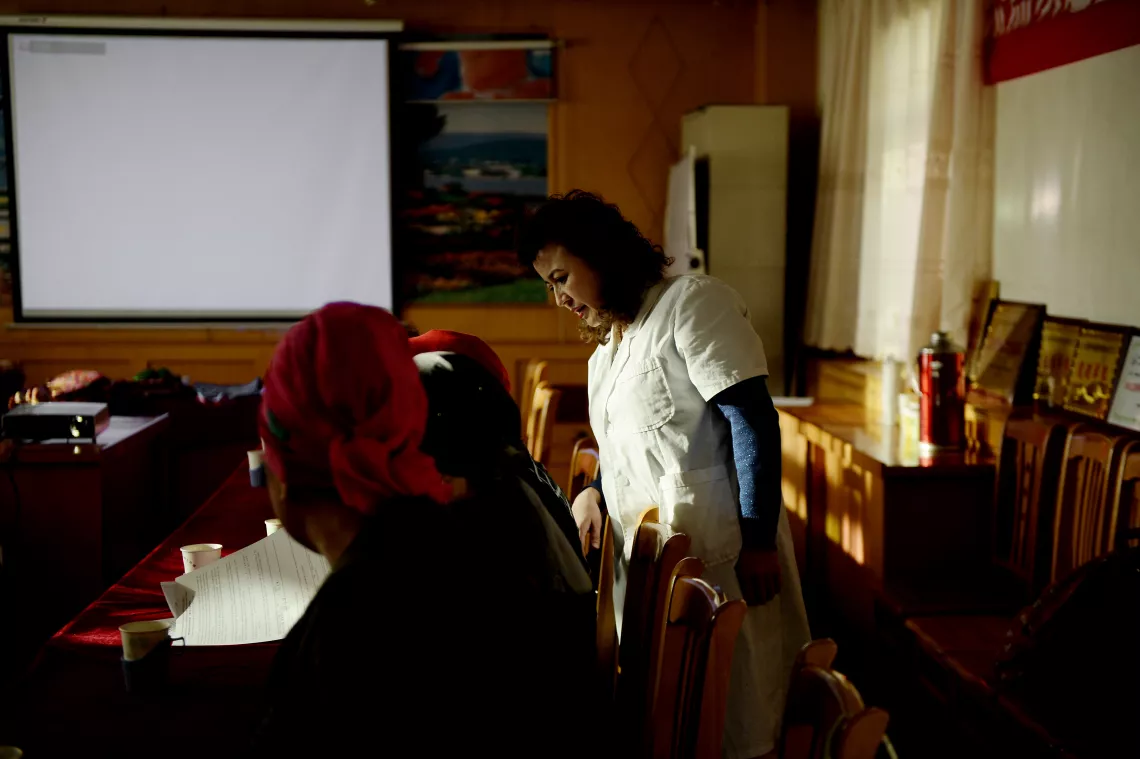
A hospital health worker seeks out HIV-positive mothers to join the project as a peer educator to raise awareness about HIV, AIDS, the PMTCT services and treatment. To reduce the loss of contact with patients, which often occurs IF women even seek out the formal health care system, peer educators often accompany women to their appointments for primary screening, testing, initial treatment, formal antenatal care, delivery, a baby’s preventive medicine visit and early infant diagnosis and treatment.
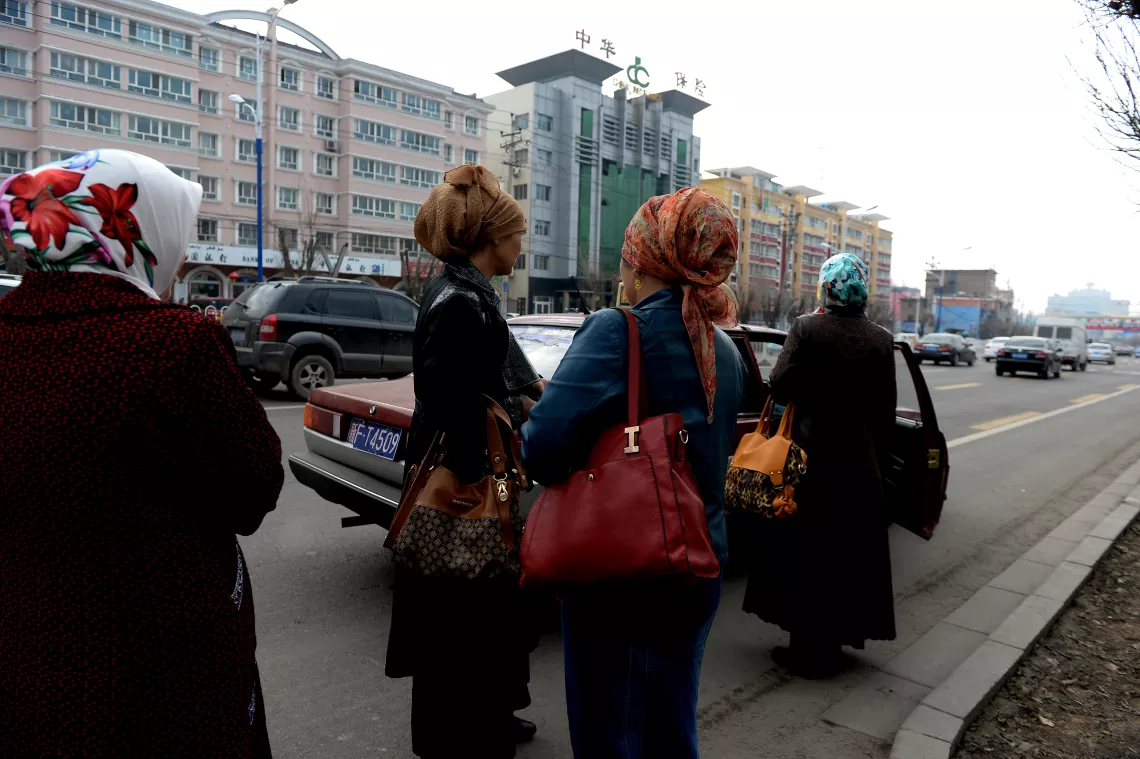
Mothers working as peer educators fan out in Yining City to reach other mothers with information that can change their children’s lives. The PMTCT project encourages pregnant women to visit the MCH facility four times before giving birth and twice after for testing both herself and her newborn.

Working in small groups or on their own, peer educators seek out women at home to make them aware there are options for them and their children to live long, healthy lives. The peer educators share their own experiences and success with the treatment to encourage other women to test and seek out early treatment and to ultimately help reduce the public’s fear towards AIDS.
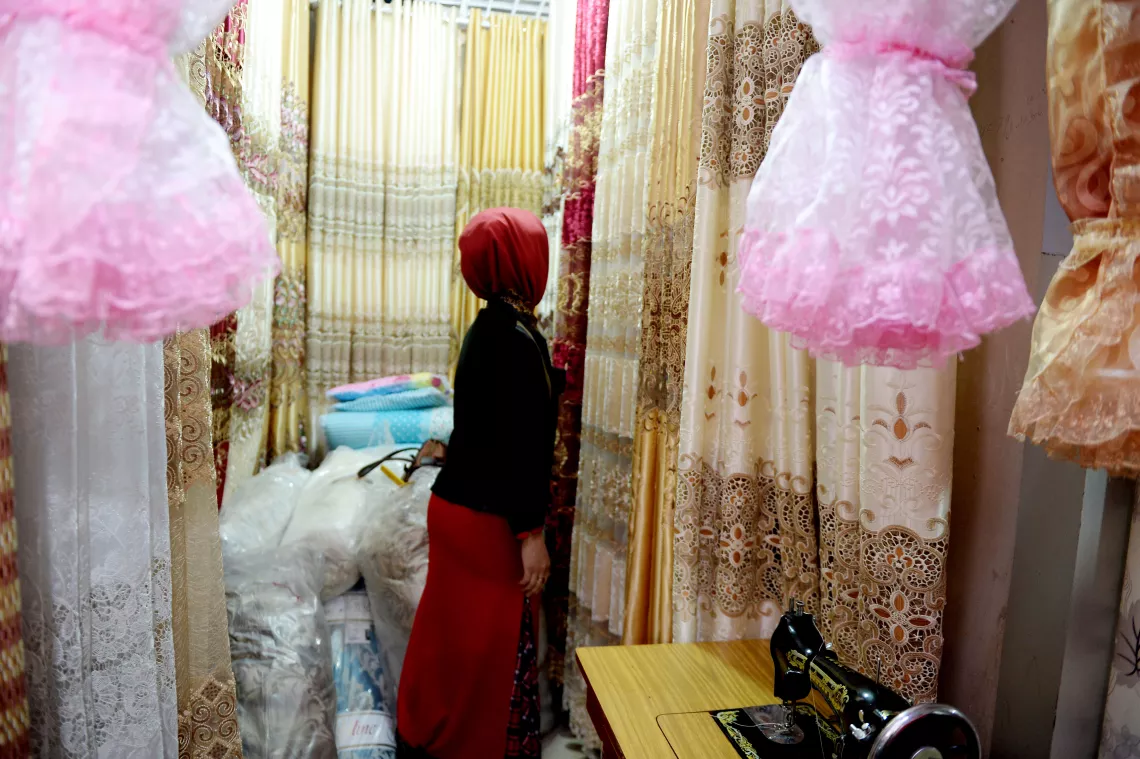
A woman living with HIV in Yining City opened a curtain shop with a small loan and training she received through the PMTCT project. In addition to encourage HIV testing and helping women seek treatment, the project includes promoting small-scale self-sufficiency activities among women living with HIV. The peer educators work with village committees to organize handicraft workshops, provide access to agricultural specialists, help women access small loans and help them set up small businesses, like street stalls or small shops. The intent is to elevate women’s income as well as their courage, confidence and capability to fight their HIV infection.
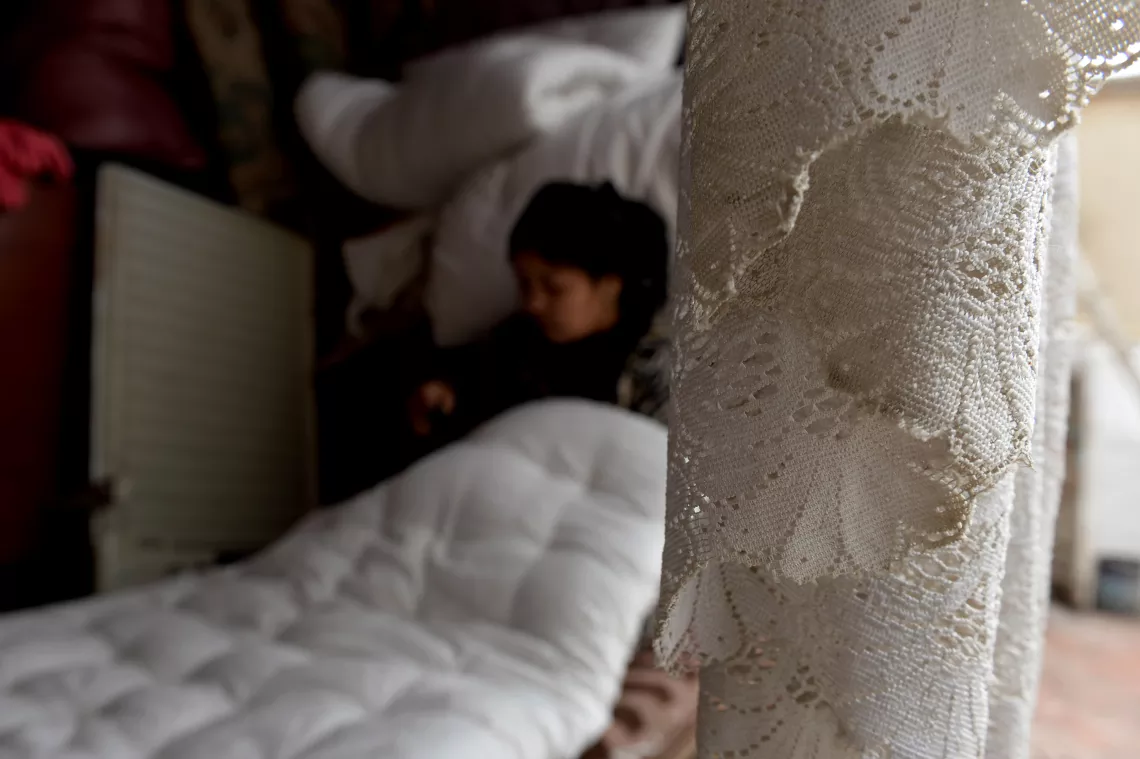
Using a loan and skills training she acquired through the project, another woman living with HIV operates a small shop in Yinning City, selling quilts and textiles that she makes to support her family.
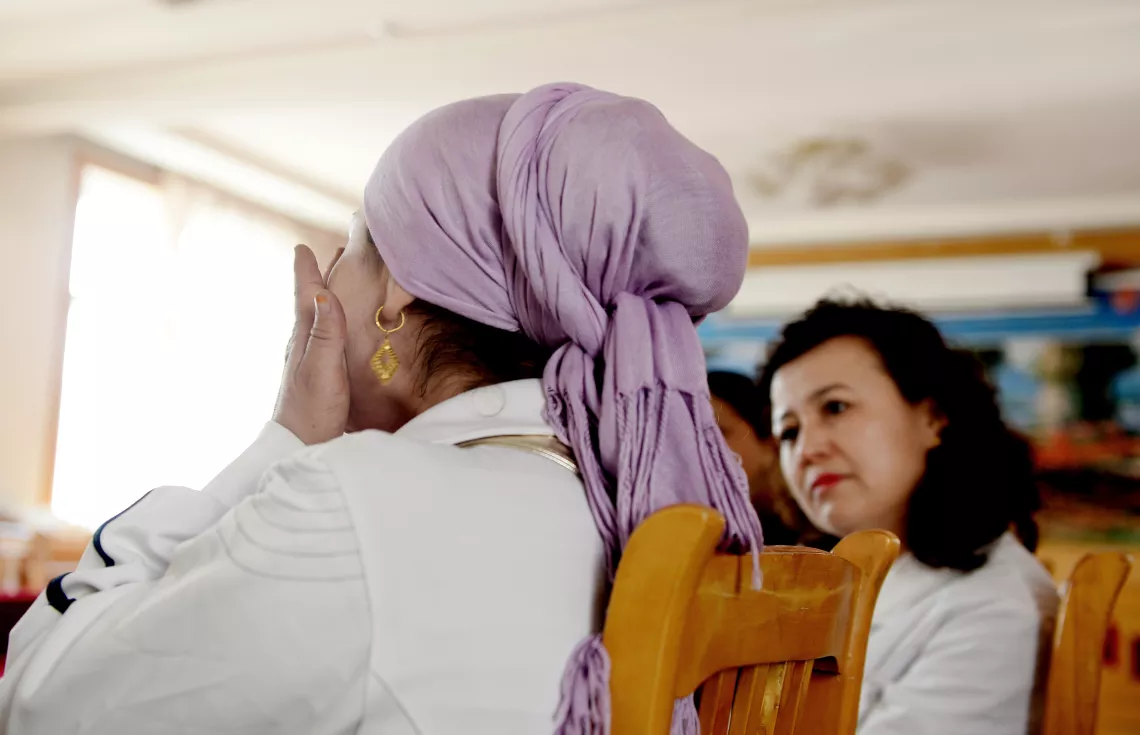
Misinformation or lack of information prompts women across China to make heartbreaking life decisions. Biya, a mother of three girls, breaks into tears during a peer education session while explaining her decision to abort her second pregnancy at five months because her first daughter, diagnosed with AIDS, was sick. Biya, who had just learned she also was HIV-positive, did not want another child to suffer. She had never heard about PMTCT options. With PMTCT treatment from her local hospital, Biya’s third and fourth babies were delivered healthy and free of HIV.
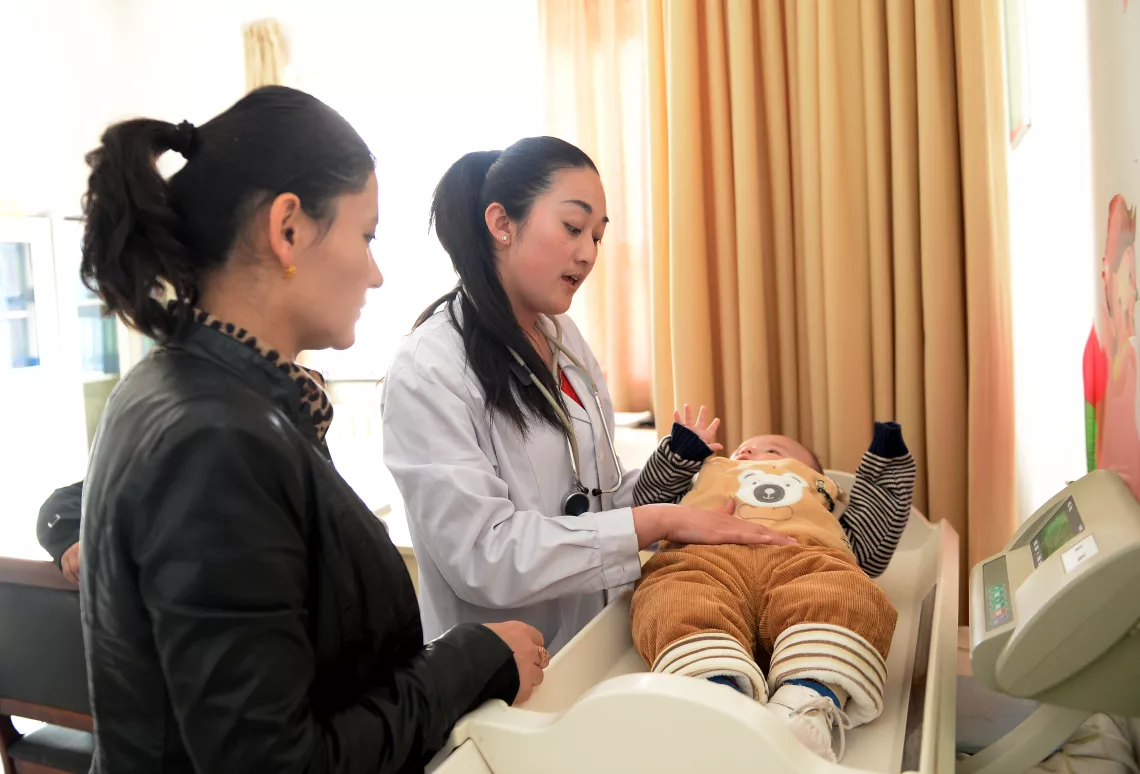
MCH doctors are seeing more and more pregnant women and newborns, and with government and UNICEF support, are able to offer effective health care services for a stronger and HIV-free start in life.


